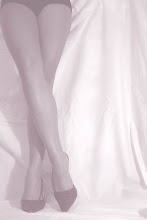

Shakespeare’s Globe - a world of its own
Katharine Grice of the Globe about Shakespeare, his theatre
and his plays which talk about human emotions
When was the Globe built?
“Shakespeare was one of four actors who bought a share in
the Globe. By early 1599 the theatre was up and running and
for 14 years it thrived, presenting many of Shakespeare’s greatest plays.
In 1613, during a performance of Henry VIII, wadding from a stage cannon
ignited the thatched roof and the theatre burned to the ground
‘all in less than two hours, the people having enough to do to
save themselves’. The theatre was quickly rebuilt, this time with
a tiled roof. Shakespeare may have acted in the second Globe, but he probably never wrote for it. It remained the home for Shakespeare’s old company until the closure of all the theatres under England’s Puritan administration in 1642. No longer of use, it was demolished to make room for tenements in 1644. The project to rebuild Shakespeare’s Globe was initiated by the American actor, director and producer
Sam Wanamaker in 1949. 21 years later he founded what was to become the Shakespeare Globe Trust. After 23 years spent tirelessly fundraising, researching the appearance and planning the reconstruction with the Trust’s architect Theo
Crosby, Sam Wanamaker died, the site having been secured, the exhibition undercroft structurally complete and a few timber bays of the theatre
in place. In 1997 the theatre was completed.”
What do you think it was like to watch a play in the Globe in ancient
times?
“During Shakespeare’s time, play-going was a popular activity. People from all social backgrounds attended the public playhouses. The excitement, vitality and participation of audiences in Shakespeare’s London are in sharp contrast to the more reserved conventions of theatre-going in our own time. Popular subjects for plays were stories about love, witchcraft, poison, conspiracy history, assassination, revenge and murder. But while many attended the playhouses, there were those who spoke out against these
‘temples of Satan’, complaining that ‘our theatres and play houses in London are as full
of secret adultery as they were in Rome’. They opposed the use of elaborate costume, the attendance of prostitutes and the use of boy actors to play the parts of women. Despite these outcries the theatres were extremely successful and acting
companies like Shakespeare’s continued to perform not only for the public, but also for the Queen at court and in private houses for important members of the ruling class.
No other playwright could match Shakespeare’s ability to write plays that appealed to
such a wide and varied audience.”
Do you think Shakespeare’s plays, even though written almost 500 years ago, are still relevance today?
“Yes, that is of course why there are so many productions of Shakespeare today. The themes and characters in his stories continue to be relevant for contemporary audiences. The plays in our current season, Romeo and Juliet, is about young love against a backdrop of violence between two families, the subject of Troilus and Cressida is tragic love and a pointless war and As You Like It has romance, poetry, satire and some well-loved characters.”
What kinds of activities are offered for children besides watching the
plays? Are they allowed to act on stage?
“At Shakespeare’s Globe there are drama and art workshops on Shakespeare and plays for 8-11 year olds to attend while their parents are watching a matinee performance.
The children are brought into the theatre 20 minutes before the performance. They are called Childsplay and cost £12.50. On Sam’s Day in June there are free
workshops and activities for all the family to attend on a day to celebrate
the birthday of the founder.
Name: William Shakespeare
Born: Probably April 23 in 1564. No-one is entirely sure if this is his date of birth, but documents were found, which state that he was baptised on April 26 in 1564. In olden
days children were baptised really soon after birth because people wanted to protect the newborn’s soul from the devil.
Place of birth: Stratford upon Avon (about 100 miles away from London. His father’s address was Henley Street so that is today believed to have been Shakespeare’s home.
School: Very little is known about his childhood. However, the King’s New Grammar School taught boys basic reading and writing in Stratford. In those days only boys were allowed to go to school. He was taught Latin, Poetry and History. Shakespeare never went to University.
Games he played: As a boy of say, ten Shakespeare would have probably played games very similar to the ones you still play today. They would play Hopscotch, or Marbles, or something called Blind Man’s Buff. Blind man’s Buff is very similar to playing tag. A group of people, the size of the group doesn’t matter, play somewhere outdoors. One person who will be called “It” during the game is picked to be blindfolded. He then has to find the people around him who are allowed to make noises to set “It” on the wrong track. The game is either over if “It” has found the people around him or the
blindfold is handed over to the person the “It” finds first.
